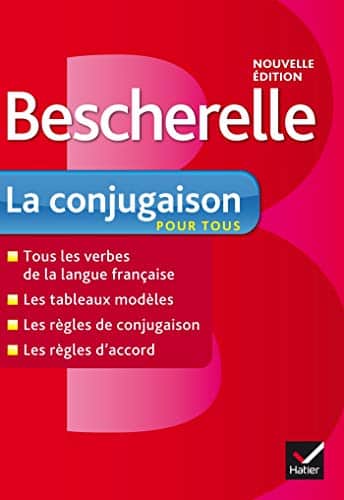Bridging the Gap: Transitioning into Intermediate French Courses

Are you stuck trying to move beyond beginning French?
Lots of French learners note how easy it is to get off the ground initially.
But then they learn how hard it is to advance beyond the basics.
Perhaps you’ve finished one year of French courses, an intensive online program or a semester of linguistic immersion in France.
No matter which path you took to get here, there are key considerations you’ll need to make while starting intermediate French.
In this blog, I’ll tell you what you can expect from the next step of your linguistic adventure and how you can better succeed with your newly advanced coursework.
Donc, on commence! (So, let’s start!)
Download: This blog post is available as a convenient and portable PDF that you can take anywhere. Click here to get a copy. (Download)
Bridging the Gap: Transitioning into Intermediate French Courses
What Will You Learn in an Intermediate French Course?
At its core, intermediate and beginner French courses are made up of the same standard ingredients that you already know and love: vocabulary and grammar.
So, what’s the big deal with intermediate French? Nothing really…except that you’ll be dealing with a lot more vocabulary and grammar at a more complex level.
Let’s take a look at each component, beginning with vocabulary.
- Vocabulary
As you may have guessed, you’ll still be learning new vocabulary words on a daily basis and, as you also may have guessed, that means adding to the endless stack of flashcards. Sorry…that never goes away!
These new vocabulary words are slightly more nuanced because you’re moving away from tangible objects like a coffee (un café) or the car (la voiture) and towards more abstract ideas like government (le gouvernement), being in love (être amoureux) and so on.
In your beginner French courses, you learned skills like ordering food or asking for directions, and these are very necessary things to know for basic French survival.
However, if you plan on spending time in a French speaking country, the truth is that you can only say things like, “je voudrais une pomme…rouge” (I would like a red… apple) so many times before people start to lose interest in talking to you.
Think about your most interesting conversations in English. They’re about likes and dislikes, your hopes and goals for the future, funny memories and intriguing ideas. These are the types of conversations that you’re just starting to enter in your intermediate French courses. It’s a great place to be. As your vocabulary grows increasingly complex, your conversations will grow increasingly fun!
- Grammar
Get ready to dust off your faithful copy of “Bescherelle: La conjugaison pour tous” (THE book for French verb conjugation) and hit the ground running!
In your beginner French courses, you probably stuck with the essential verb tenses: le passé composé (the past tense), le présent (the present tense), and le futur proche (the near future tense).
Those were (and still are) excellent tools to express yourself in the three necessary time periods but, alas, they’re no longer sufficient!
You’ll now dive headfirst into the world of the l’imparfait (the imperfect), le futur simple (the simple future), le plus-que-parfait (the pluperfect), le conditionnel (the conditional) and le subjonctif (the subjunctive).
Fortunately, they’re much easier to conjugate than you may think! The biggest problem is usually understanding the contexts in which these tenses are used.
For example, when will you use imparfait instead of the passé compose and how will these uses change with indirect vs. direct discourse? These are the types of questions that your intermediate French class is going to tackle!
You aren’t going to stop with verbs, though! Those pesky prepositions are going to play a more vital role in your coursework than they ever had before.
Remember trying to tease apart when you should use à and when you should use de? And do you remember thinking, “what does it matter if I mess these up a little bit?”
Well, it’ll matter now because you’ll begin to construct more elegant sentences that require a firm grasp on prepositions. For instance, you need to know how to use the more difficult relative pronouns, — like à qui, lequel and duquel — in order to avoid pointless repetition.
It can all be very intimidating, I know, but take heart and remember the words of the world’s greatest detective, Sherlock Holmes, when he said, “brilliance is the infinite capacity for taking pains.” Your verb-conjugating and preposition-learning induced headaches are nothing more than potential brilliance!
How Can You Find a Great Intermediate French Course?
And now for the good stuff!
For your convenience, I’ve track down a few awesome intermediate French courses. For those of you seeking true immersion, the first two courses are located in Paris!

Campus Langues
This is by far the best bang for your buck! It’s half the cost of any other program found in Paris and will allow you to get a student visa (if you want to take an intensive course for longer than 3 months).
Institut de Langue et de Culture Françaises
Another option for those looking to enroll in an immersion program abroad. It’s slightly more expensive, but you can expect great teachers and lots of fun cultural activities!
Online
For those of you who may be more limited in terms of time, location and finances, you can find several good resources available online.
You can check out Babbel, an interactive site that offers courses for both beginners and more advanced learners. Babbel has become a very popular way to learn languages online and makes learning French easy and convenient.
Or you could consider the very famous Rosetta Stone, where you can learn through full language immersion and even swing a discount if you’re a student.
FluentU takes authentic videos—like music videos, movie trailers, news and inspiring talks—and turns them into personalized language learning lessons.
You can try FluentU for free for 2 weeks. Check out the website or download the iOS app or Android app.
P.S. Click here to take advantage of our current sale! (Expires at the end of this month.)
How to Succeed in Your Intermediate French Course
Paying attention and studying hard are, like, ugh…exhausting. However, these are two huge components to being successful in the classroom. That being said, there are many more things to consider once you’re attending higher level French lessons. Hear me out (or, I guess in this case, read me out?).
Use technology in the classroom.
The benefits of using smartphones for learning a second language can’t be denied. You have the whole world—in any language—quite literally at your fingertips!
But if our favorite web-slinging superhero taught us anything: with great power comes great responsibility. Before you enter the classroom, you should seriously ask yourself if you’re the type of person that can use a French dictionary app as your main research tool. If you’re not into apps, you’ll want to consider one of those old, bulky, hardback dictionaries as well.
I know…they’re sooooo heavy and take up much-needed space in your backpack, but looking up words the old-fashioned way can be so tedious that you’ll actually remember words better just to prevent yourself from having to look it up again!
Print dictionaries are also more likely to keep you focused. When most people look at their phone for one reason, they have a million other reasons to become distracted. Looking up vocabulary words is no different. What starts as a simple word search turns into reading text messages, tweets, e-mails or Facebook notifications even if it’s just for a “quick peek.”
Since your coursework is now more complex, these are distractions you can’t afford. Realistically, glancing at your phone every once in a while isn’t the end of the world. Even so, be aware that temptation will arise when you give yourself a legitimate excuse to keep your phone on your desk. So, while I’m a complete advocate of using technology to your benefit, you need to ask yourself whether it’s actually going to be beneficial for you.
Location, location, location.
I’m aware that this might sound overly nitpicky, but choosing where you sit in the classroom is more important than you might think.
In your first year of French, everyone began with the same French skills (that is to say, you all started from nothing). This changes as you advance because people progress through language learning at different paces. You want to sit near others who are roughly equal to you in terms of speaking abilities and dedication.
In an intermediate French course, there’s much more conversation which means you’ll likely be broken into small groups for activities. If you’re next to others who are at a much higher skill level, you may find the other people dominating conversations and projects. On the other hand (perhaps the worse of the two evils) if you find yourself with a partner who’s much lower than your skill level, you won’t get as much out of these exercises.
Furthermore, try to seat yourself next to people who just as dedicated to learning as you are. You may find, if studying abroad, that some people are only taking French courses to fulfill visa requirements. I’ve had many people tell me, “I hate French. I’m only here because I want to stay in the country.” C’est dommage! (What a shame!)
While there’s never any excuse for being rude to or ignoring your classmates, you can get the most out of your class time if you strategically position yourself next to people who want to be there just as much as you do!
Don’t think class is over when the bell rings.
My French professor recently told me that for every 1 hour in class, I should study for 2 hours (per night!) at home. Thus, when I was taking 4 hours of French classes per day, I should have been studying 8-10 hours per night! Right?
Okay…that’s obviously not a realistic goal (unless you’re lucky enough to be constantly surrounded by talkative French speakers), but it is necessary to put in more independent effort.
Fortunately for you, this is much easier to do at the intermediate level! You’re finally reaching a point where French music, television shows, books and other media are becoming comprehensible without totally depending on transcripts or translations.
You may not understand everything, but every little bit helps! Also, why not invite some of your new classmates for a cup of coffee or dinner? Small group study can be a great way to make those flashcard drills a little less tedious and a lot more fun! Just remember, the more time you put in outside of class, the easier your in-class time will be and the sooner you’ll reach fluency!
Below, I’ve provided a few links or your new “Intermediate French Success Kit” as I like to call it!
BBC Languages French

Tv5MONDE

I recently stumbled across this website and, I must say, it has quickly become my favorite out-of-class study aide. They have load of activities to practice skills at the B1-B2 level. No matter what level you are, Tv5MONDE will make its way into your “favorites” bar!
French by French
This has many great lessons that are designed by actual French teachers! They, too, have instructional aides for all levels and have a really great intermediate section. The best part about it? It is FREE!
As I said in the beginning of this post, intermediate and beginner French course are made up of the same basic ingredients.
However!
The final result of your intermediate French course will be much sweeter! With a little hard work (and a lot of flashcards) you’ll be holding interesting conversations with Francophones in no time! All that’s left to say is…study hard and bon courage!
Download: This blog post is available as a convenient and portable PDF that you can take anywhere. Click here to get a copy. (Download)
And One More Thing...
If you like learning French at your own pace and from the comfort of your device, I have to tell you about FluentU.
FluentU makes it easier (and way more fun) to learn French by making real content like movies and series accessible to learners. You can check out FluentU's curated video library, or bring our learning tools directly to Netflix or YouTube with the FluentU Chrome extension.
One of the features I find most helpful is the interactive captions—you can tap on any word to see its meaning, an image, pronunciation, and other examples from different contexts. It’s a great way to pick up French vocab without having to pause and look things up separately.
FluentU also helps reinforce what you’ve learned with personalized quizzes. You can swipe through extra examples and complete engaging exercises that adapt to your progress. You'll get extra practice with the words you find more challenging and even be reminded you when it’s time to review!
You can use FluentU on your computer, tablet, or phone with our app for Apple or Android devices. Click here to take advantage of our current sale! (Expires at the end of this month.)














